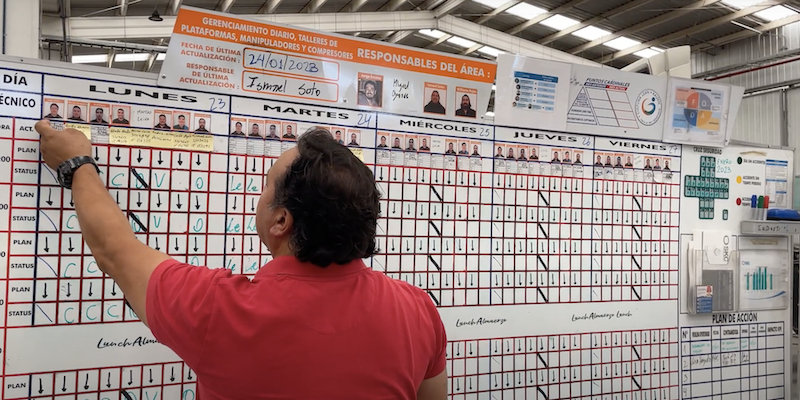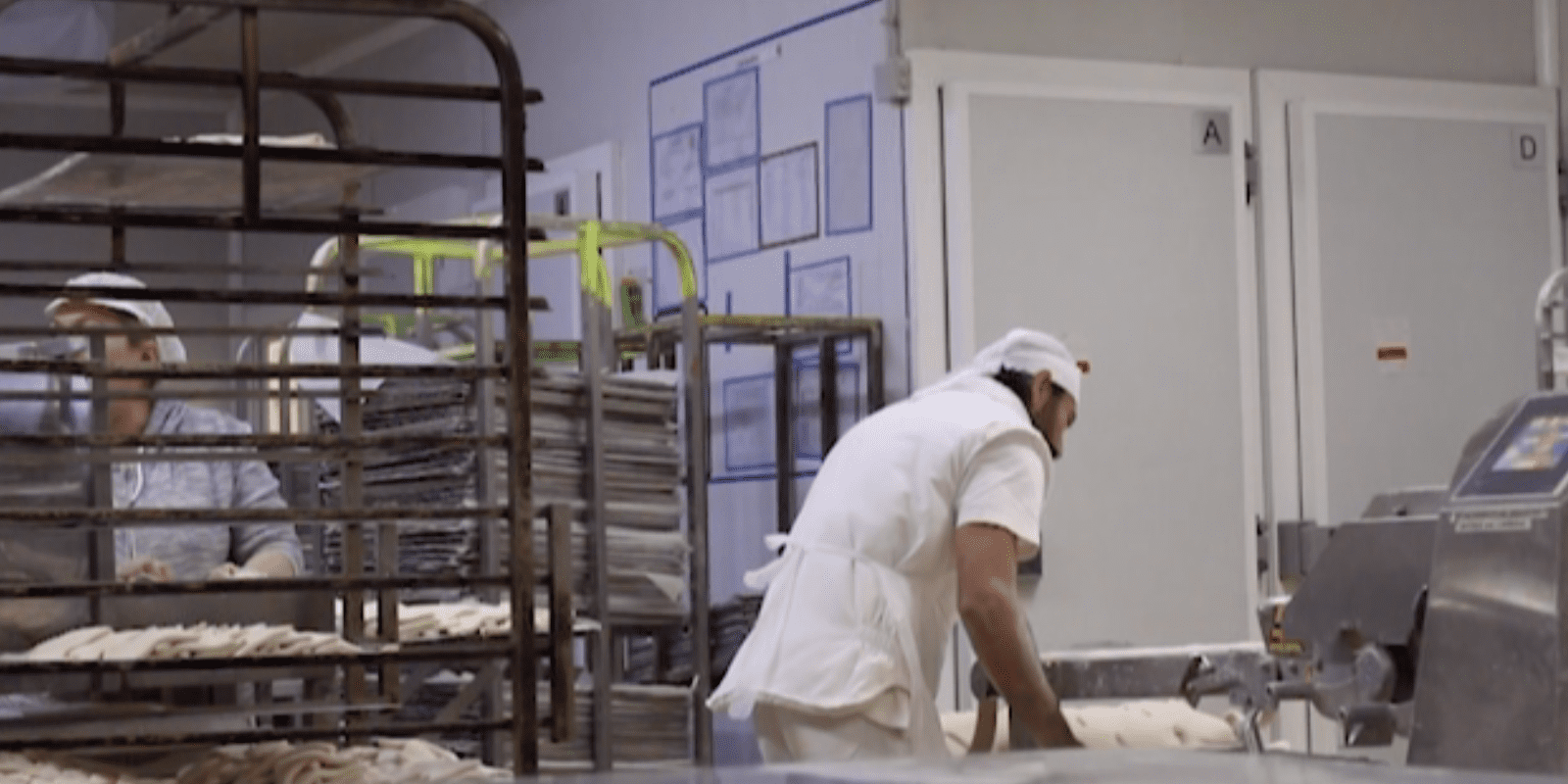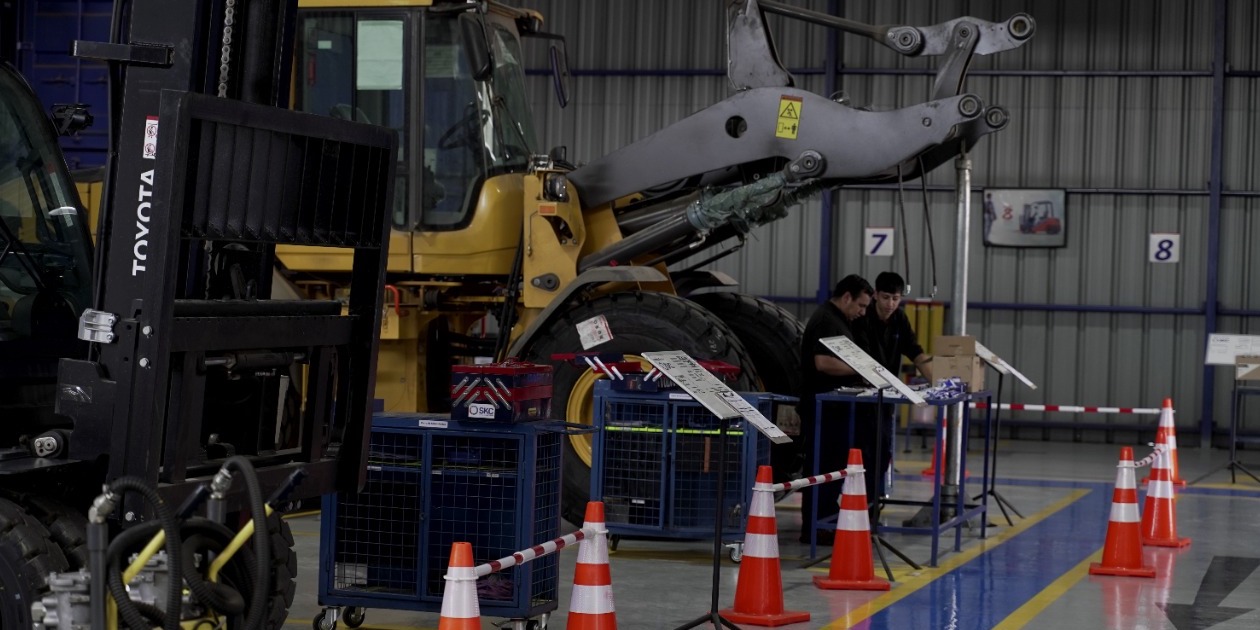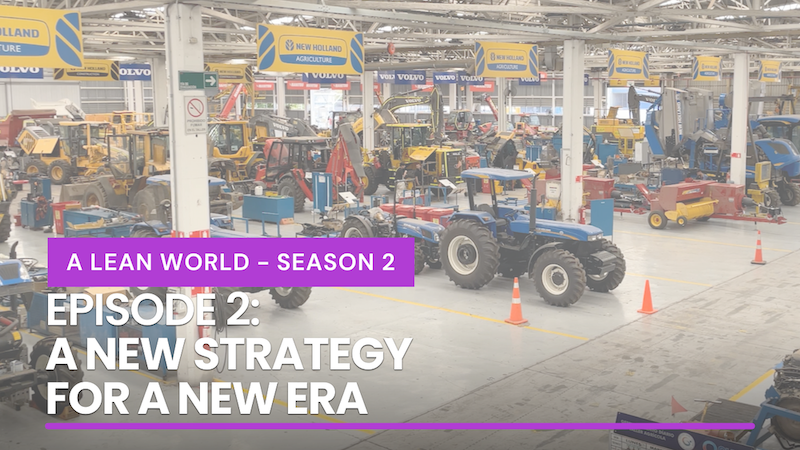
Lean begins with people
FEATURE – The author explores how SKC embraced Lean Thinking as a cultural shift – one that empowers people, transforms leadership, and shows how true sustainability starts with human growth.
Words: Miguel Pastor
At SKC, we don’t see Lean – or Lean Kaizen, as we call it – as a set of tools or isolated improvements. For us, it has become a way of seeing the world and, more importantly, of seeing our people. This shift is the result of seven years of experience, introspection, mistakes, and the growing realization that sustainable business results can only emerge when people are genuinely empowered.
When organizations set off on their lean journeys, they often approach them with traditional assumptions: fix the process, cut waste, get results. What we realized early on was that Lean goes far beyond process improvement. It is, in its deepest sense, a cultural transformation. And like all true transformations, it requires more than just systems and tools – it requires people.
For me as a leader, it all began at the gemba – when I decided to get out of the office to observe and experience the work myself. I put on the technician’s uniform and spent hours working alongside the team. Only then did I truly begin to understand the value they create, the challenges they face, and the potential that often goes unrecognized. It’s there, on the shop floor, that leadership shifts from commanding to listening, from controlling to coaching. And it’s in those shared experiences that true respect for people is built.
Lean revealed something else to me: that leadership itself must transform. Traditional, top-down management models do not create learning organizations. They stifle them. In contrast, Lean Thinking demands discipline and humility – the kind that allows a leader to set aside ego, embrace vulnerability, and admit that they don’t have all the answers. At SKC, we learned that leaders must become learners, and that success comes not from control, but from enabling others to grow and succeed.
This is not an abstract ideal. It is, in fact, deeply practical. We found that as we developed people, the business improved – sometimes in ways we hadn’t expected. By making lean culture foundational, we laid the groundwork for sustainable change. Suddenly, a journey that, by definition, requires a long-term commitment (not exactly what a shareholder, worried about the bottom line, wants to hear) started to generate immediate, scalable and repeatable results across our business units.
Our transformation started with pilot actions in the workshops, which would demonstrate the value of the Lean Kaizen approach. We built it from the bottom up, empowering front-line workers to solve real problems. The results were remarkable. Workshops that once operated at a loss began to make a profit. The company achieved a number of critical certifications in a matter of weeks. Areas that had been disconnected began working together.
Interestingly, over time, we reversed the triangle of leadership: now, it is those closest to the work who run the ship, while leaders support them from below. We witnessed people who had spent 15 years doing the same task discover new capabilities. Some moved from factory work into digital business units. Others became mentors to their peers. But the most powerful transformation was internal: Lean Thinking takes people on a journey of self-discovery that, in my mind, happens in three stages. First comes the self-awareness to see both their strengths and their limitations. Then comes the recognition by their peers and their leaders of their work, effort, and contributions, as people start to feel seen, heard, and valued. And finally, a vision materializes in their minds of who they can become.
This is what Lean does when it is used as a lever to start a revolution in an organization’s culture. It gives people a voice and a sense of ownership – something that’s particular evident, for example, when they work together on an A3 and contribute ideas on how to solve a specific problem.
Not everyone will be interested in participating in the transformation. Some will choose not to, and that’s okay, too. Respect for people also means respecting their freedom to choose. At SKC, we learned that you can help people understand and encourage them to embrace change, but you can’t force it onto them. More often than not, naysayers will decide to leave as the rest of the team moves forward and they realize they no longer align with the evolving culture of the organization.
In our experience, the overwhelming majority will embrace change. Why? Because Lean Thinking, done right, offers something rare in today’s world: a roadmap to personal development and fulfillment – which, by the way, are key enablers of operational excellence. It doesn’t matter how much ability you possess to begin with: so long as you have the right attitude and a will to change, Lean Kaizen will be there for you.
Aware of all this, SKC has made Lean foundational. It informs every decision, every process, every relationship. We measure its impact not just in operational KPIs, but in how people feel, how they grow, and how they contribute to something bigger than themselves. We even receive visits from companies who want to learn from us, walk our gemba, and see what Lean can look like and achieve. Their feedback and questions are fundamental for SKC, in that they encourage us to constantly challenge ourselves to do better.
We discovered that true sustainability comes from developing people. Financial performance, environmental care, social responsibility: all of it starts with empowering people and aligning their work to the company’s strategy. Lean is often misunderstood as a toolkit for reducing costs, but it is something much deeper. It is the embodiment of a profound respect for human potential. It is the belief that people, given the right conditions, will grow and innovate far beyond what we might imagine. Without good people, there is no good business. That is the simple, powerful truth of Lean Thinking.
THE AUTHOR

Read more


INTERVIEW – Overburdened and worn out? Visualizing your tasks using Personal Kanban can help you make sense of a busy schedule and reduce your stress, says Jim Benson.


THE LEAN BAKERY – In the fourth episode in our video series, the CEO of 365 explains how lean showed him that his business could grow (exponentially) without using any extra resources.


FEATURE - In his latest article, the author explains why pursuing human growth as part of our lean efforts is meaningless until we fully master our pull systems.


FEATURE – CEOs need to see people as assets and transform their companies’ product development systems if they are to tap into the full potential of a lean strategy.
Read more


CASE STUDY – A Chilean company selling and servicing vehicles and equipment for a variety of industries has made of humility the leading trait of its cultural transformation, with great results.


WEB SERIES – In the second episode of our docuseries on lean in Chile, we learn how, with a clear purpose and strong commitment from leadership, SKC is transforming its processes and mindset and building a competitive advantage.


CASE STUDY – This Brazilian agrobusiness has developed a unique and clever management system that puts people at the heart of the work.


FEATURE – The continuous flow of developing people’s capabilities throughout their studies and careers is lacking, to say the least. It’s time we saw this as one big value chain.

